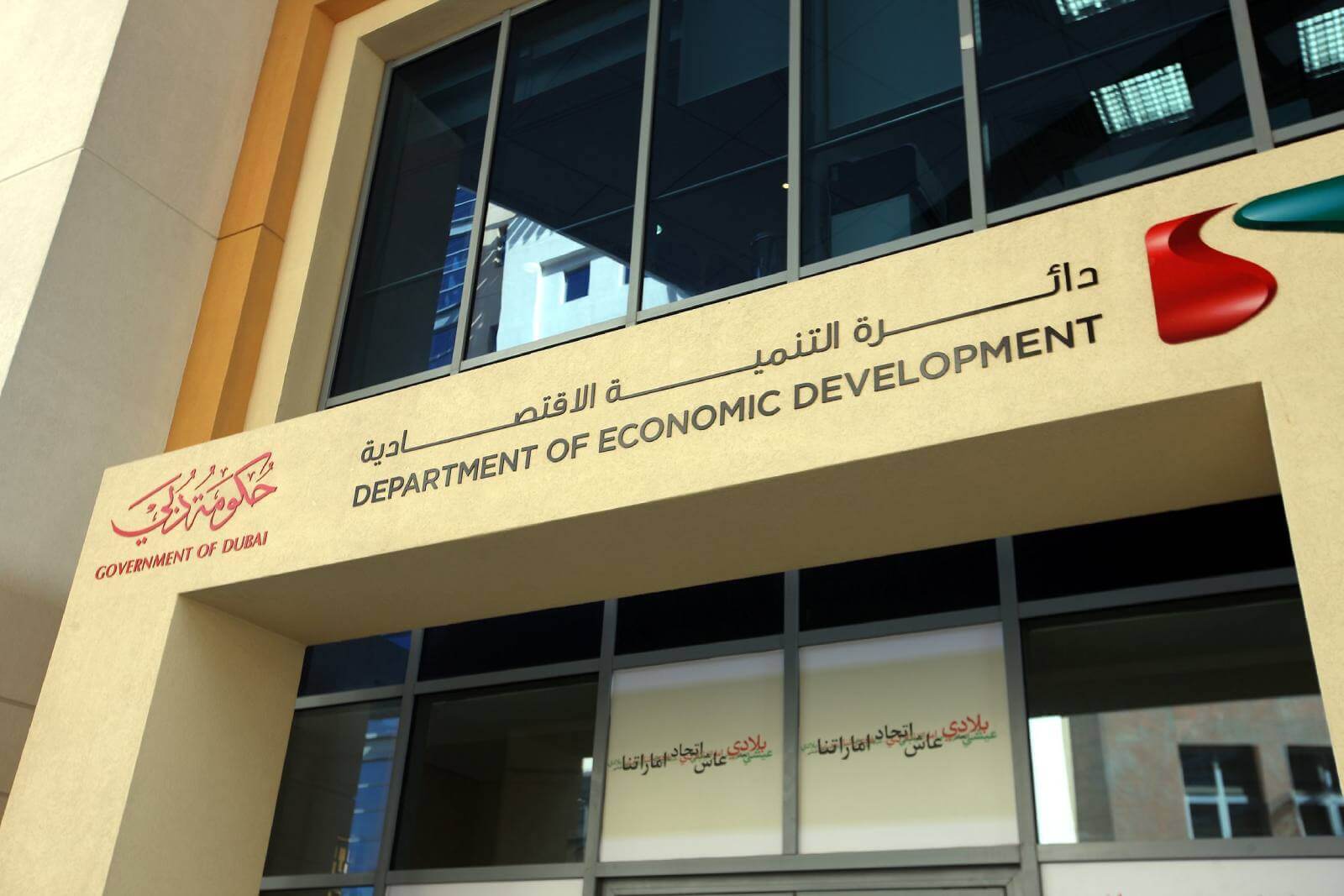
Introduction
I have helped co-found 3 companies in Dubai over 18 years and over time it has steadily got easier and easier. The Dubai government has made tremendous efforts to streamline and make the process simpler and that has been my experience. There are many choices to make so I have produced this guide to give you a general overview. At the end of the article, there is a list of useful links that will take you to the latest information and resources. The Dubai Startup scene is very exciting and full of possibilities.
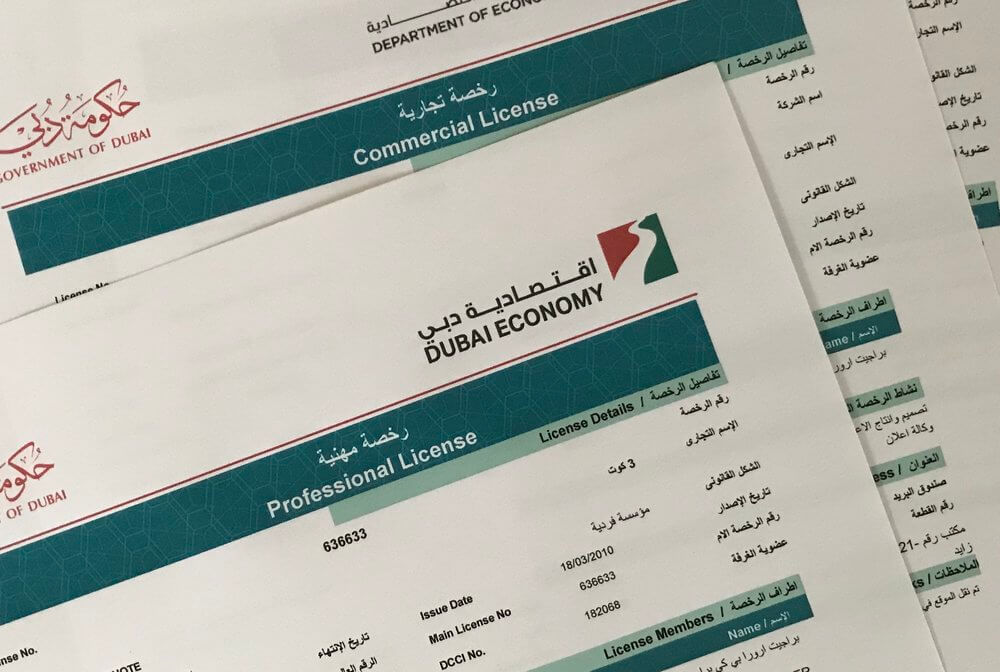
Dubai Startup is your comprehensive guide to launching and growing a successful business in the vibrant city of Dubai, United Arab Emirates. In this article, we will delve into the legal company structures, requirements to start a business, business support and infrastructure, funding and investment opportunities, the Dubai startup ecosystem, and challenges faced by startups.
Whether you’re a local entrepreneur or considering establishing your startup in Dubai, this article will provide you with valuable insights and resources to navigate the dynamic business landscape of this global hub.
Table of Contents
Legal Compay Structures in Dubai
Requirements to Start a Business in Dubai
Business Support and Infrastructure
Funding and Investment Opportunities
Dubai Startup Ecosystem and Networking
Challenges and Solutions for Dubai Startups
Legal Company Structures in Dubai
Dubai offers two primary options for setting up a startup: freezones and local companies. Each structure has its unique advantages and considerations that entrepreneurs must evaluate before making a decision.
A. Freezones
Dubai’s freezones are designated areas where businesses can operate with relaxed regulations and tax incentives. These structures cater to specific industries, such as technology, media, healthcare, and finance. Some of the popular freezones in Dubai include Dubai Internet City, Dubai Media City, and Dubai Healthcare City.
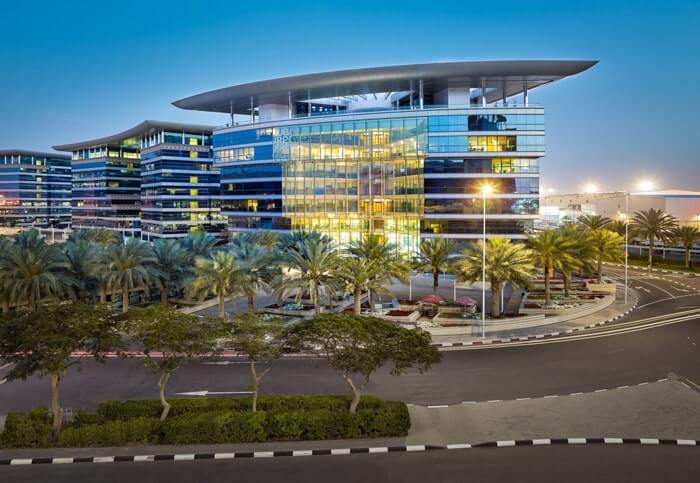
Definition and Benefits
Freezones are geographically distinct areas that provide businesses with numerous benefits. These include 100% foreign ownership, exemption from corporate and personal income taxes, simplified company setup processes, and the ability to repatriate 100% of profits. Additionally, businesses in freezones enjoy access to state-of-the-art infrastructure, networking opportunities, and proximity to industry peers.
Types of Freezone in Dubai
Dubai boasts a wide range of freezones, each catering to specific sectors. Some prominent locations include Dubai Silicon Oasis (technology-focused), Dubai Multi Commodities Centre (commodities trading), and Dubai International Financial Centre (financial services).
| Freezone | Speciality | Location |
|---|---|---|
| Dubai Internet City | Technology and Innovation | Dubai Media City District |
| Dubai Knowledge Park | Education and Training | Al Sufouh |
| Dubai Silicon Oasis | Technology and Innovation | Sheikh Mohammed Bin Zayed Road |
| Dubai International Financial Centre (DIFC) | Finance and Business | Downtown Dubai |
| Dubai Media City | Media and Communication | Dubai Media City District |
| Dubai Studio City | Film and Television Production | Dubai Media City District |
| Dubai Design District (d3) | Design and Fashion | Ras Al Khor |
| Dubai Science Park | Science and Healthcare | Al Barsha South |
| Dubai South | Aviation, Logistics, and Trade | Dubai South District |
| Jebel Ali Free Zone (JAFZA) | Trade and Logistics | Jebel Ali |
| Dubai Multi Commodities Centre (DMCC) | Commodities Trading | Jumeirah Lakes Towers |
| Dubai Airport Free Zone Authority (DAFZA) | Aviation and Logistics | Dubai Airport |
| Dubai Healthcare City | Healthcare and Medical | Oud Metha |
| Dubai Maritime City | Maritime and Shipping | Port Rashid |
Advantages and Disadvantages of Setting up a Startup in a Freezone
Setting up a startup in a freezone offers several advantages, such as simplified company registration processes, tax exemptions, and access to industry-specific support and resources. However, businesses in these areas face limitations, such as restrictions on conducting business outside the freezone, mandatory leasing of office space, and potential challenges in attracting local customers.
B. Local Companies
Alternatively, entrepreneurs can establish their startups as local companies, which operate within the broader Dubai business landscape. Local companies require engagement with the Dubai Department of Economic Development (DED) and comply with UAE Commercial Companies Law.
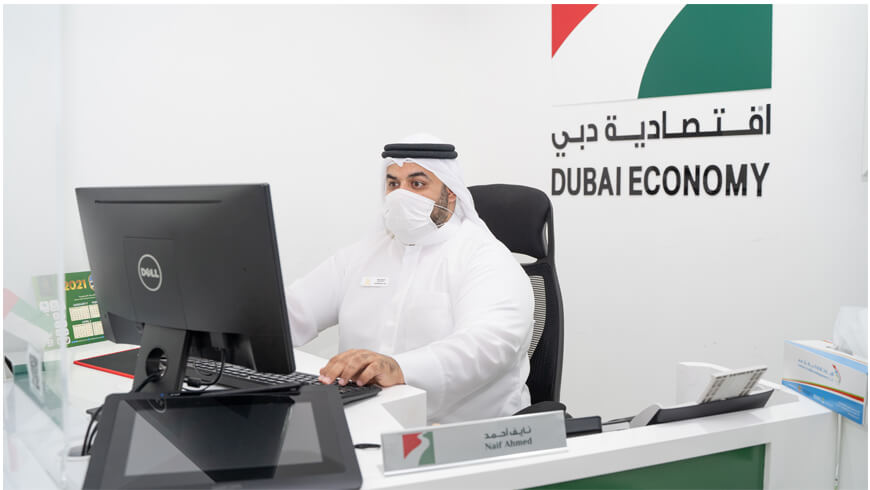
Definition and Requirements
Local companies, also known as mainland companies, are subject to specific legal requirements, including obtaining a local Emirati sponsor or partner who holds a minimum of 51% ownership in the company. However, certain professional activities can be exempted from this ownership requirement.
Differences between Freezones and Local Companies
While freezones offer a business-friendly environment with relaxed regulations, local companies operate within the broader Dubai market. Local companies have the advantage of conducting business across the UAE without geographic restrictions and easier access to the local market. However, local companies face more regulatory requirements, including the need for a local sponsor.
Chart showing the number of company certificates issued by the DED for the last few years

Pros and Cons of Establishing a Local Startup
Establishing a local startup has its pros and cons. On the positive side, local companies have broader market access, can participate in government tenders, and have more flexibility in terms of business activities. However, they also face higher setup costs, compliance requirements, and the need for a local sponsor.
There are many different legal structures that are available across local and freezone companies. Here are some below:
| Legal Structure | Description |
|---|---|
| Sole Proprietorship | A business owned and operated by a single individual. The owner has complete control over the business and assumes full responsibility for its liabilities. |
| Limited Liability Company (LLC) | A popular legal structure where owners have limited liability, meaning their personal assets are protected. It requires at least two shareholders and offers flexibility in terms of ownership and profit distribution. |
| Free Zone Establishment (FZE) | A legal structure available in Dubai free zones. It allows a single shareholder to establish a company and offers benefits like full ownership, tax exemptions, and streamlined regulations within the specific free zone. |
| Free Zone Company (FZC) | Similar to FZE, a Free Zone Company allows multiple shareholders to establish a company within a free zone. Each shareholder has limited liability, and the company benefits from the advantages provided by the specific free zone. |
| Public Joint Stock Company (PJSC) | A company that can offer its shares to the public through an initial public offering (IPO). It is suitable for large-scale businesses seeking capital from the public. The liability of shareholders is limited to their shares in the company. |
| Private Joint Stock Company (PrJSC) | Similar to PJSC, a Private Joint Stock Company can issue shares but restricts the transfer of shares to its shareholders. It is suitable for businesses that want to maintain control and limit the transfer of ownership. |
| Partnership | A business structure where two or more individuals or entities agree to carry on a business together and share profits, losses, and liabilities according to the partnership agreement. |
| Branch of a Foreign Company | A legal structure that allows a foreign company to establish a branch in Dubai. The branch operates as an extension of the foreign company and is subject to the regulations and policies of the parent company. |
| Representative Office | A legal structure that permits a foreign company to have a presence in Dubai for non-commercial activities, such as market research, promotion, or liaison with clients. It is not allowed to engage in profit-generating activities. |
| Holding Company | A company formed to hold the shares of other companies, providing a structure for the ownership and control of subsidiary companies. Holding companies are commonly used for asset management, tax planning, and corporate structuring purposes. |
Requirements to Start a Business in Dubai
To establish a startup in Dubai, entrepreneurs must navigate various legal and administrative requirements. Understanding these requirements is crucial for a smooth and successful business setup process.
A. Business Licensing
Dubai requires businesses to obtain the appropriate licenses based on their activities. The licensing process involves several steps, including determining the business activity, selecting the legal structure, and applying for the relevant licenses.
Some typical activities are listed below:
| Activity |
|---|
| Advertising and Marketing Services |
| Architectural and Engineering Services |
| IT and Software Development |
| E-commerce and Online Retail |
| Manufacturing and Industrial Production |
| Construction and Contracting |
| Hospitality and Tourism Services |
| Healthcare and Medical Services |
| Financial and Banking Services |
| Legal and Consulting Services |
| Real Estate Development and Management |
| Trading and Import/Export |
| Education and Training Services |
| Media and Entertainment Services |
| Logistics and Transportation Services |
| Renewable Energy and Sustainability |
| Food and Beverage Production and Distribution |
| Event Management and Exhibition Services |
| Research and Development (R&D) |
| Renewable Energy and Green Technologies |
| Fashion and Retail |
| Telecommunications and Internet Service Providers |
| Human Resources and Recruitment Services |
| Security Services |
| Art and Cultural Services |
Overview of Business Licences in Dubai
Dubai offers different types of licenses, such as commercial licenses, professional licenses, and industrial licenses. The type of license required depends on the nature of the business activity.
Types of Business Licences Available
The Department of Economic Development (DED) issues several types of licenses, including commercial licenses for trading activities, professional licenses for services, and industrial licenses for manufacturing and industrial activities.
Steps to Obtain a Business License
The process of obtaining a business license involves selecting a business name, submitting the necessary documents, obtaining approvals from relevant authorities, and paying the required fees. Engaging a business setup consultant or PRO (Public Relations Officer) can streamline this process.
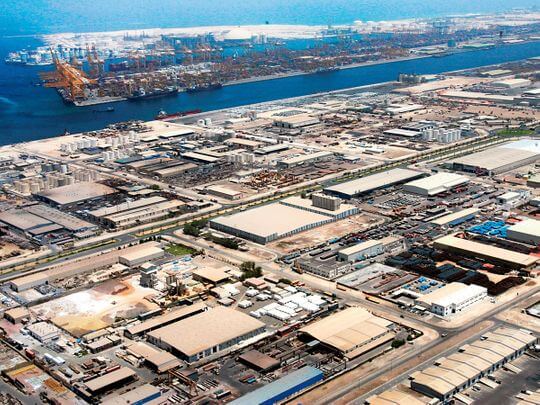
B. Visa Requirements
Entrepreneurs planning to establish a startup in Dubai need to understand the visa requirements for themselves and their employees. Obtaining the necessary visas is essential for legal residence and employment in Dubai.
Overview of Visa Requirements for Entrepreneurs
Entrepreneurs can apply for different types of visas, such as the investor visa, partner visa, or freelancer visa. The choice of visa depends on the entrepreneur’s role and the business structure.
Types of Visas Available for Startups
Visa options for startups include the entrepreneur visa, which allows the entrepreneur to act as a partner or investor in their company. Other options include the employment visa for hiring employees and the freelance visa for self-employed individuals.
Procedures for Obtaining Visas for Employees
Employers must adhere to specific procedures when applying for visas for their employees. These procedures involve obtaining necessary approvals, medical fitness tests, Emirates ID registration, and visa stamping on the passport.
Business Support and Infrastructure
Dubai offers a range of support services and infrastructure to assist startups in their growth journey. These resources can significantly contribute to the success of a Dubai startup.
A. Incubators and Accelerators
Incubators and accelerators play a crucial role in nurturing and supporting startups. Dubai hosts numerous incubator and accelerator programs designed to provide startups with mentorship, guidance, funding opportunities, and access to valuable networks.
Definition and Role of Incubators and Accelerators
Incubators provide early-stage startups with support, resources, and mentoring to help them refine their business model and prepare for growth. Accelerators, on the other hand, focus on rapidly scaling up existing startups through intensive mentorship, funding, and access to industry connections.
Prominent Incubators and Accelerators in Dubai
Dubai is home to several renowned incubators and accelerators, including in5 Innovation Centers, Dubai Future Accelerators, and DTEC (Dubai Technology Entrepreneur Centre). These programs offer startups valuable resources, mentorship from industry experts, and opportunities to collaborate with established businesses.
Benefits of Joining an Incubator or Accelerator Program
Joining an incubator or accelerator program provides startups with access to a supportive ecosystem, mentorship from experienced entrepreneurs, funding opportunities, and exposure to potential investors. Additionally, these programs often offer co-working spaces, networking events, and workshops to enhance the startup’s growth prospects.
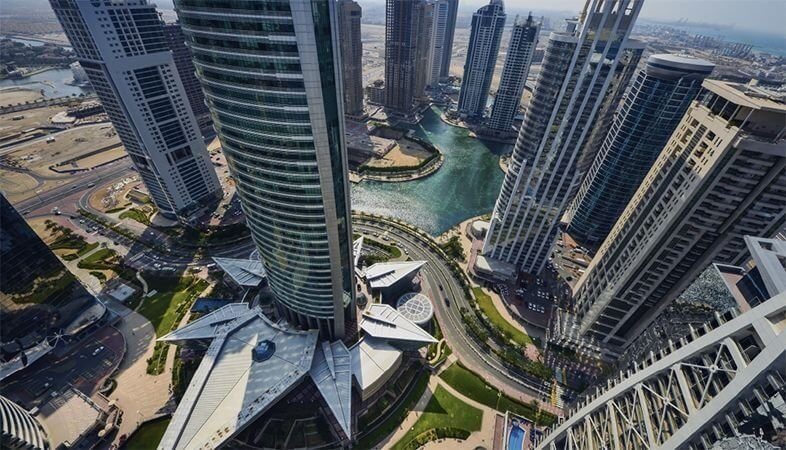
B. Co-working Spaces
Co-working spaces have gained popularity among startups and entrepreneurs for their flexibility, cost-effectiveness, and collaborative environment. Dubai offers a variety of co-working spaces that cater to the needs of startups at different stages of their growth.
Introduction to Co-working Spaces in Dubai
Co-working spaces provide shared workspaces where individuals and businesses can work, collaborate, and network. These spaces typically offer amenities such as high-speed internet, meeting rooms, communal areas, and networking events.
Advantages of Working in a Co-working Environment
Co-working spaces offer several advantages to startups, including cost savings, flexibility in terms of space requirements, access to a diverse community of professionals, networking opportunities, and a vibrant work environment that fosters creativity and collaboration.
Notable Co-working Spaces in Dubai
Dubai hosts a variety of co-working spaces, such as WeWork, The Bureau, and Impact Hub Dubai. These spaces cater to startups of different sizes, industries, and budgetary considerations, providing entrepreneurs with a range of options to choose from.
Funding and Investment Opportunities
Access to funding and investment is crucial for startups to fuel their growth and development. Dubai offers various avenues for startups to secure capital and attract investors.
A. Venture Capital and Angel Investors
Venture capital firms and angel investors play a vital role in funding and supporting startups in Dubai. These investors provide financial resources, mentorship, and valuable industry connections to startups with high growth potential.
Overview of Venture Capital and Angel Investors in Dubai
Dubai’s venture capital ecosystem has witnessed significant growth in recent years, with several local and international venture capital firms actively investing in startups. Additionally, angel investors, who are high-net-worth individuals seeking investment opportunities, are also present in Dubai.
Tips for Attracting Investment for Startups
To attract investment, startups need to prepare a compelling business plan, demonstrate market traction and scalability, build relationships with potential investors, and present a convincing pitch that showcases their unique value proposition.
Success Stories of Startups Securing Funding in Dubai
Dubai has witnessed numerous success stories of startups securing funding and achieving substantial growth. Examples include companies in sectors such as technology, e-commerce, healthcare, and fintech. These success stories serve as inspiration and motivation for aspiring entrepreneurs in Dubai.
Government Initiatives and Grants
The Dubai government recognizes the importance of startups and has launched several initiatives and grant programs to support their growth and development. These government-backed initiatives provide startups with financial assistance, mentorship, and access to a supportive ecosystem.
Government Support for Startups in Dubai
The government has established entities such as Dubai SME and Dubai Future Foundation to provide support, resources, and funding opportunities for startups. These entities collaborate with various stakeholders to create an enabling environment for startups to thrive.
Available Grants and Funding Programs
Startups in Dubai can benefit from grants and funding programs offered by government entities. These programs include the Dubai Smartpreneur Competition, Dubai Startup Hub’s Market Access Program, and the Dubai Technology Entrepreneur Campus (Dtec) Incubation Program.
How to Apply for Government Grants
To apply for government grants, startups typically need to meet specific eligibility criteria, complete an application form, and submit supporting documents. It is essential for entrepreneurs to research the available programs and carefully follow the application guidelines.
Dubai Startup Ecosystem and Networking
Being part of a thriving startup ecosystem and actively engaging in networking opportunities can significantly enhance a startup’s growth prospects. Dubai offers a vibrant ecosystem and numerous networking events for entrepreneurs to connect, learn, and collaborate.
A. Events and Conferences
Dubai hosts a wide range of startup events and conferences throughout the year, providing entrepreneurs with opportunities to learn from industry experts, showcase their products or services, and network with potential investors and partners.
Key Startup Events and Conferences in Dubai
Prominent startup events in Dubai include GITEX Technology Week, STEP Conference, ArabNet, and Seamless Middle East. These events attract entrepreneurs, investors, industry professionals, and thought leaders from around the world.
Benefits of Attending Industry Events
Attending startup events and conferences allows entrepreneurs to gain valuable insights, keep abreast of industry trends, learn from successful entrepreneurs, and establish meaningful connections with potential partners, investors, and mentors.
Networking Opportunities for Startups
Startup-focused networking events and communities provide entrepreneurs with an avenue to connect with like-minded individuals, share experiences, seek advice, and explore collaboration opportunities. Some notable networking communities in Dubai include Dubai Entrepreneurs Academy and Dubai Startup Hub.
B. Entrepreneurial Communities
Dubai is home to various entrepreneurial communities that foster collaboration, knowledge sharing, and support among startups. Being part of these communities offers entrepreneurs access to mentorship, resources, and a supportive network.
Overview of Entrepreneurial Communities in Dubai
Entrepreneurial communities in Dubai comprise industry-specific groups, co-working spaces, and networking organizations. These communities aim to create an ecosystem that encourages entrepreneurship, innovation, and collaboration.
Benefits of Joining Entrepreneurial Communities
Joining entrepreneurial communities provides startups with access to a diverse network of entrepreneurs, mentors, investors, and industry experts. These communities often organize workshops, panel discussions, and networking events, fostering learning, collaboration, and potential partnerships. One good example is the Digital Marketing Dubai with over 80,000 members so far, and there are 100s more available.
Example of Successful Startup Communities
Dubai is known for its thriving startup communities. Examples include Dubai Internet City, Dubai Knowledge Park, and Dubai Science Park, which offer a supportive ecosystem, infrastructure, and access to industry-specific resources.
Challenges and Solutions for Dubai Startups
While Dubai presents a favorable business environment for startups, entrepreneurs also face specific challenges. Understanding these challenges and implementing effective strategies is crucial for startup success.
A. Market Competition
Dubai’s startup scene is highly competitive, with numerous entrepreneurs vying for market share. Startups must develop strategies to differentiate themselves and stand out from the competition.
Overview of Competitive Landscape in Dubai
Dubai’s competitive landscape encompasses various sectors, including technology, e-commerce, fintech, and tourism. Startups need to understand their target market, identify their unique value proposition, and develop strategies to effectively compete in their industry.
Strategies for Standing Out in a Competitive Market
To differentiate themselves, startups can focus on innovation, providing exceptional customer experiences, building strong brand identities, leveraging technology, and creating strategic partnerships. By delivering unique value and addressing customer pain points, startups can gain a competitive edge.
Case Studies of Successful Dubai Startups
Several Dubai startups have successfully navigated the competitive landscape and achieved remarkable success. Case studies of these startups serve as valuable lessons and inspiration for entrepreneurs looking to make their mark in Dubai.
B. Talent Acquisition and Retention
Acquiring and retaining top talent is crucial for the growth and success of startups. Dubai’s competitive job market poses challenges for startups in attracting and retaining skilled employees.
Hiring Challenges Faced by Startups in Dubai
Startups often face difficulties in attracting qualified and experienced talent due to competition from established companies and limited resources. Additionally, visa requirements and cultural considerations can impact the hiring process.
Tips for Attracting and Retaining Top Talent
Startups can adopt strategies such as offering competitive compensation packages, providing growth and development opportunities, creating a positive work culture, offering flexible work arrangements, and providing meaningful work experiences. Leveraging recruitment platforms, engaging with universities, and building strong employer brands are also effective methods for attracting talent.
Examples of Innovative Talent Acquisition Strategies
Several Dubai startups have implemented innovative talent acquisition strategies to attract top talent. Examples include offering equity options, providing remote work opportunities, fostering a diverse and inclusive work environment, and partnering with educational institutions for talent pipeline development.
Conclusion
Dubai’s startup ecosystem offers a wealth of opportunities and resources for aspiring entrepreneurs. Whether choosing a freezone or establishing a local company, understanding legal company structures is crucial. Navigating the requirements for business licensing and visas is essential for a smooth startup setup process.
Availing of business support services such as incubators, accelerators, and co-working spaces can provide startups with valuable guidance and networking opportunities. Access to funding and investment is vital for startup growth, and Dubai offers various avenues for securing capital.
Engaging in the vibrant startup ecosystem and actively networking can contribute to a startup’s success. However, challenges such as market competition and talent acquisition must be addressed strategically. By leveraging the available resources and implementing effective strategies, entrepreneurs can navigate the Dubai startup landscape and unlock their business’s full potential.
FAQ
FAQ: What are the advantages of setting up a startup in a Dubai freezone?
Setting up a startup in a Dubai freezone offers advantages such as 100% foreign ownership, tax incentives, simplified company setup processes, streamlined regulations, access to state-of-the-art infrastructure, networking opportunities, and a supportive ecosystem tailored to specific industries.
FAQ: What are the key differences between freezones and local companies in Dubai?
The key differences between freezones and local companies in Dubai revolve around ownership, regulations, and market access. Freezones allow 100% foreign ownership, while local companies require a local Emirati sponsor or partner. They have their own regulatory frameworks, relaxed regulations, and tax incentives, while local companies operate within broader Dubai markets and comply with UAE Commercial Companies Law.
FAQ: What are the requirements for obtaining a business license in Dubai?
To obtain a business license in Dubai, entrepreneurs need to determine the business activity, select the appropriate license type, submit necessary documents (business plan, passport copies, lease agreements), obtain approvals from relevant authorities, and pay the relevant fees.
FAQ: How can entrepreneurs obtain visas for themselves and their employees in Dubai?
Entrepreneurs can obtain visas for themselves and their employees in Dubai by understanding the visa types (e.g., investor visa, partner visa), following specific procedures (approvals, medical tests, Emirates ID registration), and seeking assistance from a PRO or visa processing service.
FAQ: What support services do incubators and accelerators offer to startups?
Incubators and accelerators offer resources, mentorship, guidance, shared office spaces, funding access, networking events, and industry-specific programs to support startups at different stages. Incubators focus on early-stage startups, while accelerators help rapidly scale existing startups.
FAQ: What are the benefits of working in co-working spaces in Dubai?
Co-working spaces provide flexibility, cost savings, access to a diverse professional community, collaboration opportunities, networking events, workshops, and a dynamic work environment that boosts productivity, creativity, and motivation among startup teams.
FAQ: How can startups secure funding from venture capital firms and angel investors in Dubai?
Startups can secure funding by preparing a solid business plan, researching potential investors, building relationships, crafting a compelling pitch, participating in pitch competitions, and leveraging networks and introductions.
FAQ: What government initiatives and grants are available for startups in Dubai?
Dubai offers initiatives and grants such as the Dubai Smartpreneur Competition, Dubai Startup Hub’s Market Access Program, Dtec Incubation Program, Dubai SME support, and initiatives by Dubai Future Foundation to provide financial support, mentorship, and exposure to startups.
FAQ: Which are the key startup events and conferences in Dubai?
Key startup events and conferences in Dubai include GITEX Technology Week, STEP Conference, ArabNet, Seamless Middle East, and events organized by Dubai Startup Hub, offering networking, learning, and exposure opportunities.
FAQ: How can entrepreneurs overcome market competition challenges in Dubai?
Entrepreneurs can overcome market competition challenges by differentiating their offerings, understanding the target market, building customer relationships, focusing on innovation, forming strategic partnerships, and staying updated with market trends and customer demands.
Useful Links
- For the latest information about company registrations in mainland Dubai, check here.
- One of the best places in Dubai to visit to get advice on starting a company is the DED cafe.
- The Dubai International Financial Center (DIFC).
- For information about Dubai Free Zones.
- For a General Guide about Dubai.
- More information about Dubai and UAE economy.
- Come to Dubai to visit and setup your business. Check out the visit visa entry requirements.
- Looking to relax, check out the best beaches in Dubai.
- Check out the best locations to go shopping in Dubai.
- For Residence Visas Dubai information.
- Please read about laws and regulations in Dubai.
- Dubai hosts major exhibitions around the year to boost businesses such as GITEX.
- Worried if Dubai is safe?
- Check out the best of Dubai Apps for all your needs.
Key Takeaways
- Dubai offers two primary options for setting up a startup: freezones and local companies.
- Freezones provide tax incentives, simplified company setup processes, and access to industry-specific resources, but have restrictions on conducting business outside the freezone.
- Local companies operate within the broader Dubai market, with the advantage of conducting business across the UAE but requiring a local sponsor.
- To start a business in Dubai, entrepreneurs need to obtain the appropriate business licenses and visas.
- Dubai offers a range of support services, including incubators, accelerators, and co-working spaces, to assist startups in their growth journey.
- Funding opportunities are available through venture capital firms, angel investors, and government initiatives.
- Dubai has a vibrant startup ecosystem, with numerous events, conferences, and entrepreneurial communities.
- Startups in Dubai face challenges such as market competition and talent acquisition, which can be overcome through innovation, strategic differentiation, and creating a positive work culture.









